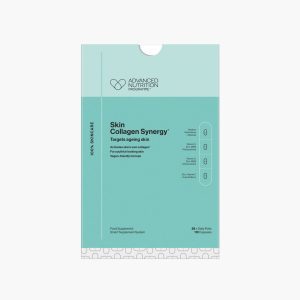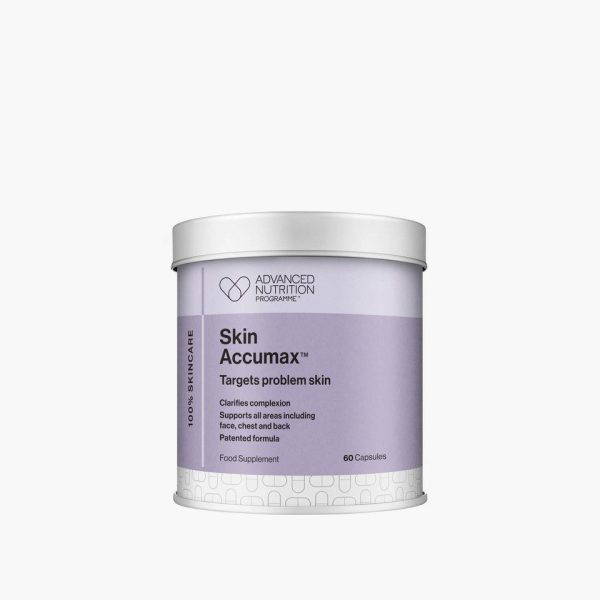How to maintain healthy skin after the menopause
From hot flushes to mood swings to changes in your skin – menopause has the ability to change our bodies due to the fluctuation of hormones, as estrogen production slows down and levels begin to drop. Our skin health experts have rounded up the best Advanced Nutrition Programme™ supplements that can target the most common skin concerns experienced after the menopause.
If you have: Fine lines and wrinkles
Fine lines and wrinkles can be one of the first things you notice after the menopause, as the body’s own collagen production slows down. It is estimated that women’s skin loses about 30% of its collagen during the first five years of menopause [1].
Collagen-supporting ingredients should be key in your supplement routine, including zinc, vitamin C, MSM, and phytonutrients. These are known as collagen co-factors which are essential for the body to product its own collagen.
Thankfully, all of these ingredients can be found in the Skin Collagen Synergy supplement system – which supports fresh, younger-looking skin while reducing the appearance of fine lines and wrinkles.
Advanced Nutrition Programme | Skin Collagen Synergy – £62.00
If you have: Problem skin:
Problem skin can also be a common skin concern after the menopause due to hormonal changes. This can have a profound emotional impact, and relieving the condition can be hugely beneficial for increasing self-confidence.
Advanced nutrition programme recommend a supplement containing a synergy of vitamins A, C and E, while phytonutrients have also been proven to benefit problem skin and clarify complexion.
Advanced Nutrition Programme | Skin Accumax from £48.00
If you have: Uneven skin tone:
Melanin is the substance in your body that produces pigmentation in hair, eyes, and skin. As the body goes through menopause and hormone levels fluctuate, this can affect skin tone, potentially leading to a more uneven complexion.
Advanced nutrition programme recommend a supplement system that contains nutrients supporting an uneven skin tone, including vitamin C, niacin, copper*, olive fruit extract. co-enzyme Q10, pine bark extracts all support uneven skin tone.
All of these can be found in Skin Even IQ, the smart supplement system which targets stubborn pigmentation for a radiant, even complexion.
Advanced Nutrition Programme | Skin Even IQ – £89.00
For overall skin health:
To support skin health, introduce key active ingredients including vitamin A, vitamin C and antioxidants^. Vitamin A helps generate healthy-looking*** skin cells, while vitamin C supports collagen production and antioxidants can protect the skin against free radicals.
Advanced nutrition programme also recommend incorporating omega 3 and 6 fatty acids to help compensate for the decline in oils and nutrients that occur after the menopause.
Additionally, include skin-friendly bacteria to balance your microbiome. Having a health gut allows us to absorb the nutrients from our diets better, which is beneficial for the skin. Evidence also shows that specific strains of bacteria within the gut could directly benefit the skin in a variety of ways [2]. Therefore, maintaining a diverse, healthy gut microbiome is an important factor for skin health.
Skin-friendly bacteria is featured in the Skin Youth Biome™ which targets the 7 visible signs of ageing including: fine, lines, wrinkles, uneven skin tone, dullness, dryness, and thinning skin.
Supplement links here:
Advanced Nutrition Programme | Skin Clear Biome 60caps – £60.00
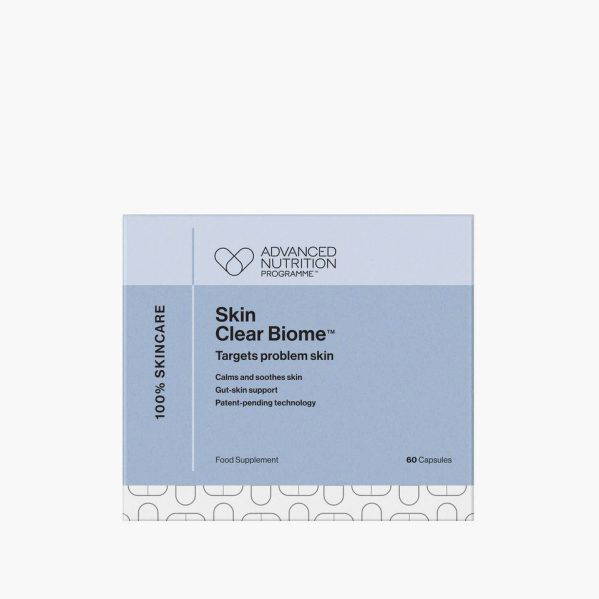
Advanced Nutrition Programme | Skin Youth Biome 60 caps – £60.00
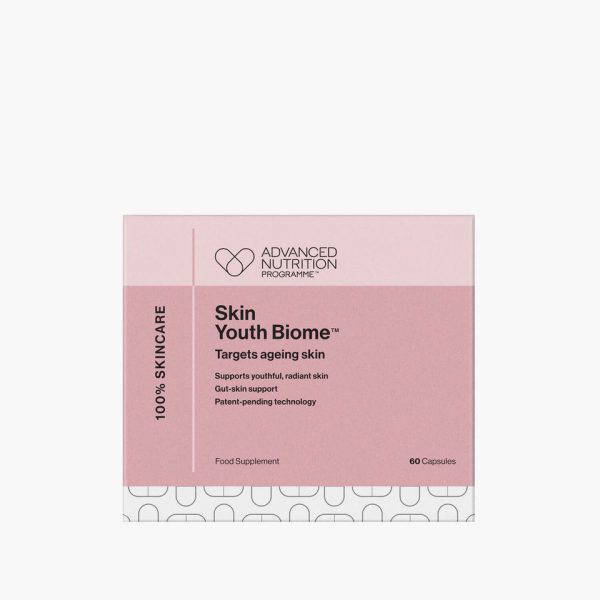
Advanced Nutrition Programme | Skin Omegas + from £34.00
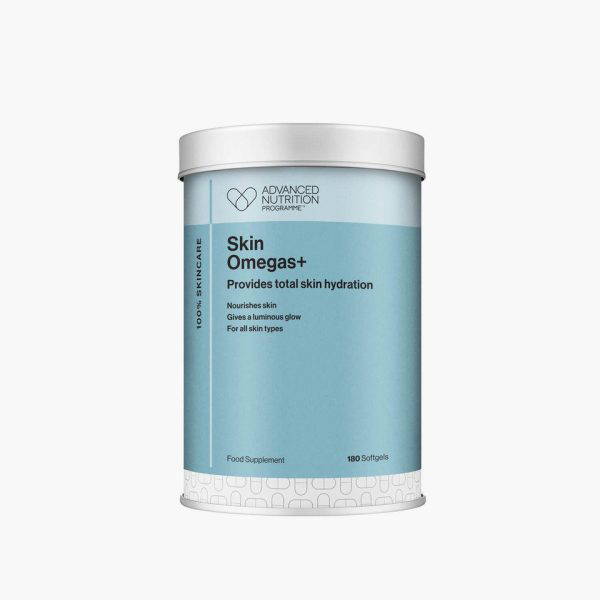
Key:
[1] Caring for your skin in menopause, American Academy of Dermatology Association
[2] The gut microbiome, diet, and links to cardiometabolic and chronic disorders,.National Library of Medicine. Nat Rev Nephrol. November 30, 2015.
*Copper contributes to normal skin pigmentation
** Vitamin C contributes to the normal function of collagen
*** Vitamin A supports the normal maintenance of skin
^ Vitamin C contributes to the protection of cells from oxidative stress


